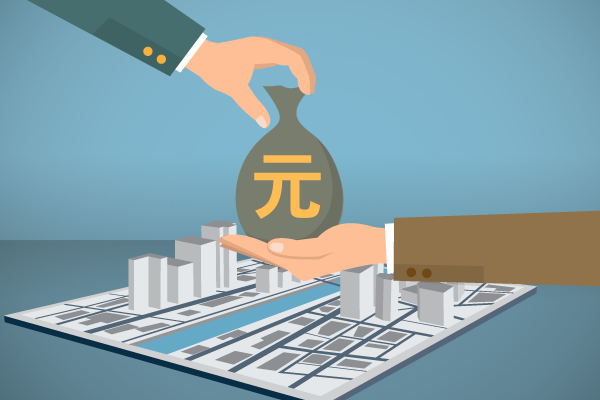Connecting Real Estate Stimulus & GDP

China's GDP growth slowed to 6.9% in 2015, the slowest in 20 years. It is believed that a stagnant real estate sector, particularly in second and third tier cities where there is an overstock of unsold homes, has contributed to this slowdown in growth. Policy makers have therefore been looking for ways to boost home sales in those markets in order to boost the country's economic growth. Destocking the housing market was set as a key task for 2016 during the Central Economic Work Conference last December, and stimulus measures have been introduced to try to boost sales. CEIBS Professor of Finance and Accounting Oliver Rui explains the risks and opportunities in China's real estate sector.
Q: The government has taken several steps (lower minimum down payment rate, a series of interest rate cuts, etc.) to boost property sales in second and third tier cities where there is overcapacity. But people are still reluctant to buy property in smaller cities. Meanwhile the property market in first-tier cities appears to be showing signs of overheating. What should policy makers do to address the problems in the property sector? How can they strike a balance?
Rui: Overcapacity in smaller cities is absolute overcapacity because average house ownership is more than 100% in those cities. A stimulus policy will not resolve the issue in the short run. Overheating in the first tier cities is driven by over-liquidity, speculation, a mood of panic as well as fraud. Different policies should be implemented.
Q: What impact will this destocking of the property market in second and third tier cities have on China’s economy?
Rui: Destocking can mitigate the current trend of economic slowdown, in the short-term. Hopefully, it can stabilize the economy and rebuild confidence.
Q: Will there be any spill-over effect on the stock market, as funds may keep migrating to the housing market in the short run. Will it drive another stock slump?
Rui: There is little overlap between real estate investors and stock investors. While people who make money from the stock market can use the funds in the real estate market, it is less likely that people who earn money from the property market will spend it in the stock market













